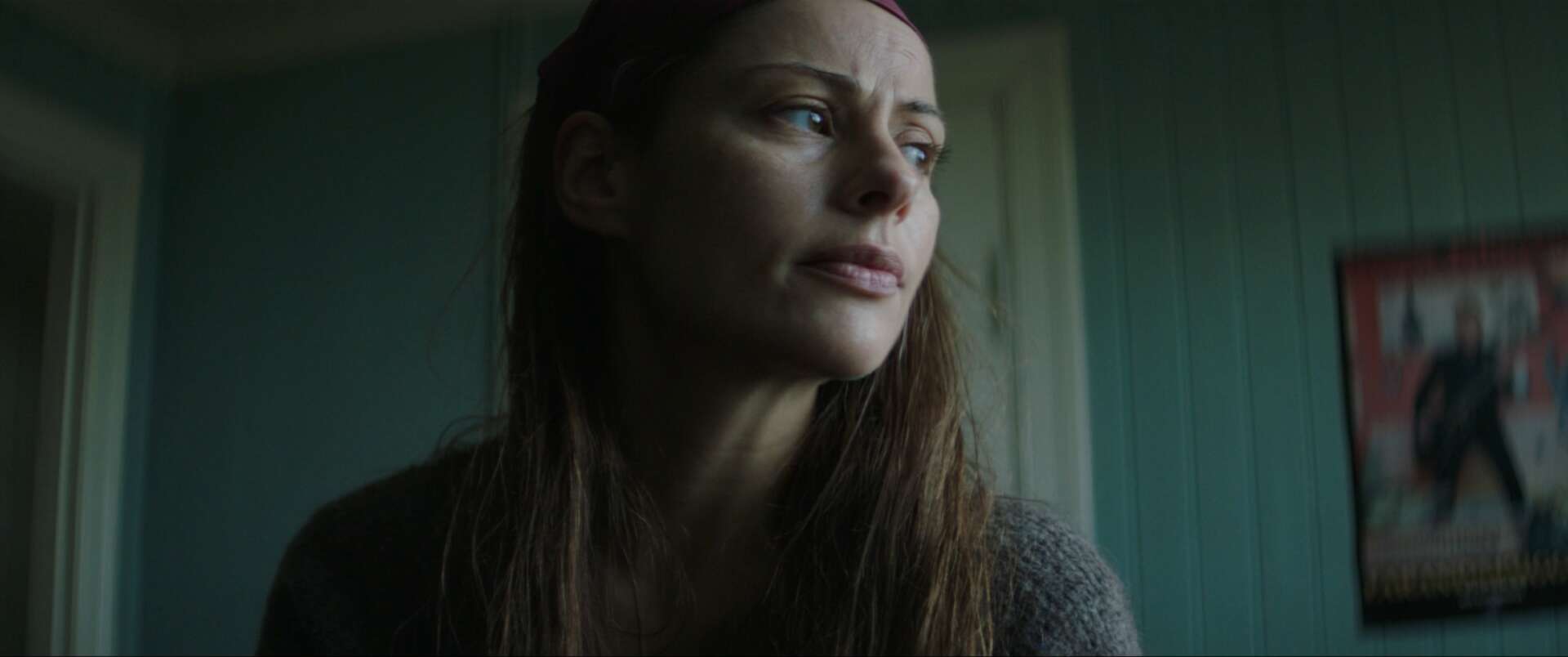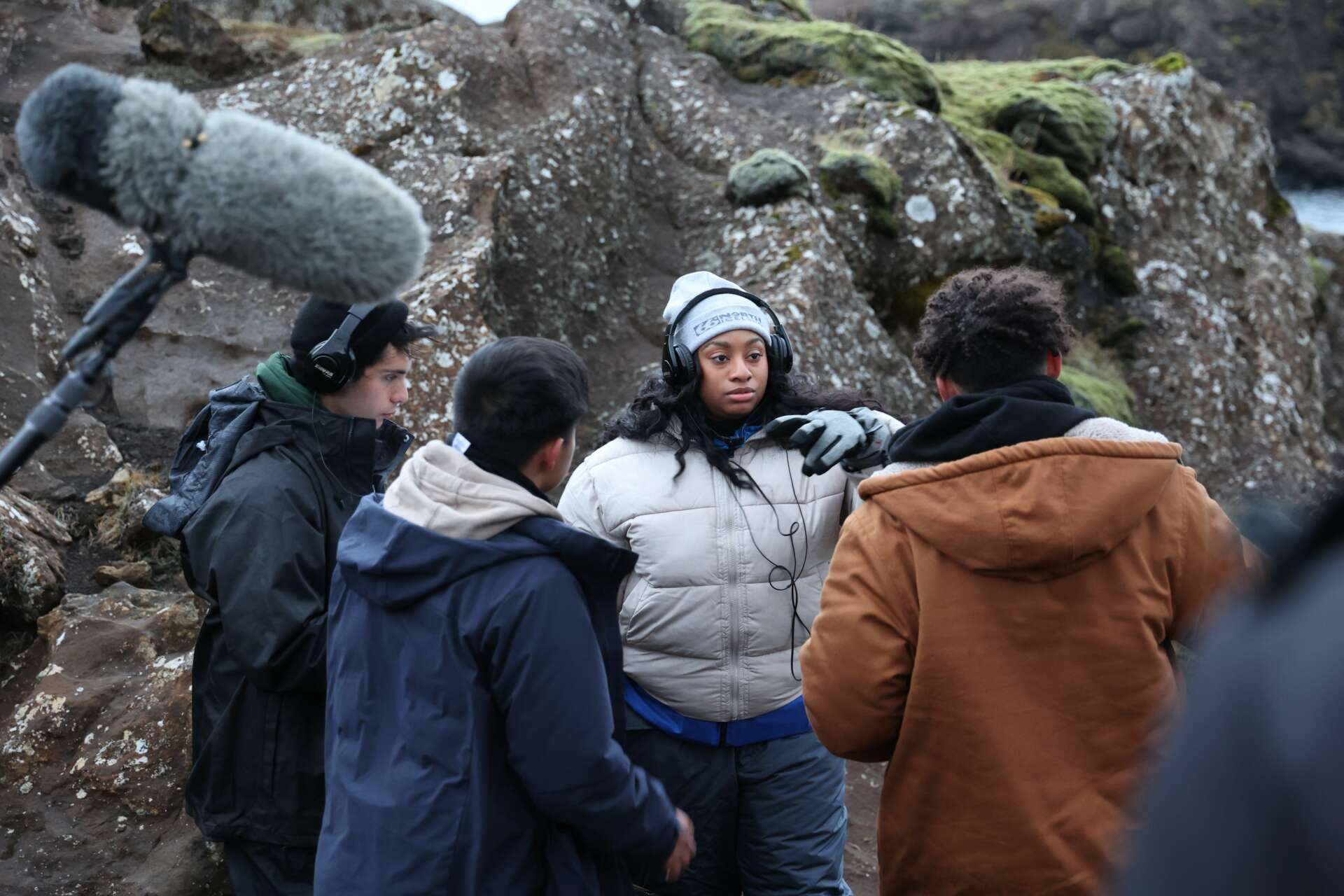We caught up with the brilliant and insightful Jasiel Louison a few weeks ago and have shared our conversation below.
Alright, Jasiel thanks for taking the time to share your stories and insights with us today. How did you learn to do what you do? Knowing what you know now, what could you have done to speed up your learning process? What skills do you think were most essential? What obstacles stood in the way of learning more?
I grew up in Trinidad, where filmmaking wasn’t a big part of our culture. It wasn’t something I even considered as a career path. We didn’t go to movie theaters to watch blockbusters, so filmmaking never crossed my mind as a creative outlet.
When I returned to the US and enrolled in high school in the South Bronx, everything changed. I was lucky that my high school specialized in cinema and was conveniently located just two blocks from my house, which my Mom liked. I was immediately drawn to filmmaking, not for the glitz and glamor, but as a means of storytelling.
My journey into filmmaking began as a storyteller in a school environment. We delved into the art of storytelling, dissecting character motivations, themes, and how they translate onto the screen. I learned the emotional impact of different angles and shot sizes, as well as how to infuse subtext into a script. While my high school was pivotal in teaching me about filmmaking, it was at the Ghetto Film School program where I truly excelled.
In that class of about 20 students, I felt a bit behind. Many of my peers had known they wanted to be filmmakers since childhood, watching big blockbusters with their families. Some had even written scripts before. I was new and unsure of my voice. It took me a while to grasp all the technical aspects. I understood the basics of putting a film together, but the pieces didn’t fully click in my head. Part of it was my own self-doubt, constantly comparing myself to peers who seemed more advanced. It was discouraging.
The turning point came when I returned to Trinidad one summer and decided to make a short documentary about my family’s return home. Despite facing challenges like using a small GoPro and not being able to review footage in real-time, I pressed on. The most significant moment was when my family reunited in our small hometown. The emotions overwhelmed me, and although the technical aspects were lacking, I wouldn’t have had it any other way. This experience showed me that filmmaking was a powerful tool for capturing human experiences and emotions.
From that moment, everything fell into place. I gained a better grasp of cameras, color theory, lighting, and other technical components. Hands-on experiences on various sets, taking on roles like AD, production design, and editor, solidified my understanding. My education laid the foundation, but it was the practical experiences that truly cemented my knowledge.
Over the past few years, I’ve continued to grow in my skills and technical proficiency. I’ve had the opportunity to travel and direct projects. Looking back, I realize that the learning journey couldn’t have been rushed. Filmmaking is not only technical but deeply personal. I needed to find my voice before everything else fell into place.
For me, the most crucial skill in filmmaking is effective communication. As a director, it’s about translating ideas into actionable words for my actors and conveying the emotional beats to the cast and crew. I’ve learned to speak the language of those around me, tailoring my communication to suit each role.
Patience has also been a vital skill to master. At the start, I was eager to be a version of myself that I hadn’t yet become. I had to go through experiences, trials, and obstacles to truly become an effective filmmaker. It’s a constant learning journey that now excites me.
Being self-aware is key. It means being willing to learn, acknowledging my blind spots, and knowing when to seek help. It’s about striking a balance between being a self-starter and being proactive on sets.
One of the biggest challenges I faced was when I moved away for college. I felt disconnected from my network and support system. Even though I built a new network at my new school, I had to evaluate if the environment truly facilitated my growth as a filmmaker. Ultimately, I made the leap of faith and transferred back to New York City, and it made a world of difference in my filmmaking journey.




Awesome – so before we get into the rest of our questions, can you briefly introduce yourself to our readers.
I am a 22-year-old writer and director based in the Bronx, New York, drawing my creative spark from my South Bronx upbringing and experiences as a young Trinidadian immigrant. My passion for storytelling has been central to my desire to inspire social change. I started in the art department on various independent sets and it not only imparted me with invaluable industry knowledge but also played a pivotal role in shaping my approach to visual storytelling. One of my recent works, “Reverie,” is a poignant exploration of the challenges faced by an interracial couple amidst a backdrop of racial tension. This film draws substantial inspiration from the landmark 1967 Supreme Court case, Loving v. Virginia. In 2022, I directed “The Ocean Listens to No One,” a family drama that explores generational trauma, filmed against the dramatic backdrop of Iceland. This year, I’ve sought to push my own creative boundaries, in my two experimental short films “Son of Mary” and “People Reborn,” both funded through the prestigious Mythical Creator Grant I earned in 2022. This year I’ve also branched out to exploring other forms of short-form media, like branded work as well as music videos, carrying over my strong visual style and voice, that distinguishes my work.
In addition to these directorial pursuits, I am also embarking on a new journey, venturing into the role of a producer. Directing and Producing my first music video and commercial projects under my new production company, The Vault Pictures. Through this endeavor, I aim to play a pivotal role in bringing other artists’ stories to life and highlighting work that lifts the voices of other Caribbean American artists.



For you, what’s the most rewarding aspect of being a creative?
The most fulfilling aspect of being an artist, for me, is witnessing the journey of shaping a story. It starts with a spark of an idea, then evolves through the stages of scriptwriting, creating a creative deck, and involving other artists to breathe life into it. Witnessing the project’s transformation is incredibly gratifying. What initially begins as a personal thought gains a collective identity, all aligned under one vision. I find immense joy in seeing fellow artists inspired, injecting fresh ideas into the project, and observing something once so simple bloom into a vibrant, multi-dimensional creation. From editing decisions to sound design, the collaborative process stands out as the most rewarding part of crafting a narrative.



Is there mission driving your creative journey?
My long-term goal to be a part of social change is what drives me to keep moving forward in my creative journey. Long term, I’d like to expand my production company, The Vault Pictures to the Caribbean. There as so many stories to be told that I hope to be a part of bringing to the forefront of media, and the Caribbean holds such a rich culture that I think holds universal stories and folklore that would reintroduce a refreshing perspective in filmmaking. I also think having agency in media is so important and I hope to be a part of having stories told by Caribbean artists for our own communities.



Contact Info:
- Website: https://www.jasiellouison.com/
- Instagram: https://www.instagram.com/jasiellouison/?hl=en
- Linkedin: https://www.linkedin.com/in/jasiel-louison-858388254/


